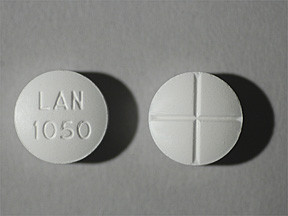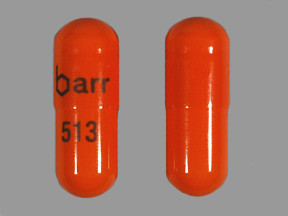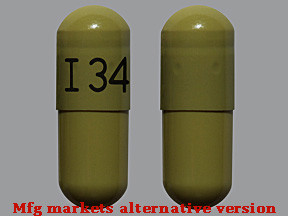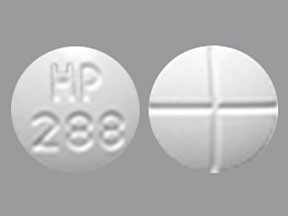ACETAZOLAMIDE - ORAL
PHONETIC PRONUNCIATION: (a-SEET-a-ZOLE-a-mide)
COMMON BRAND NAME(S): Diamox
GENERIC NAME(S): acetazolamide
Uses
USES: Acetazolamide is used to prevent and reduce the symptoms of altitude sickness. This medication can decrease headache, tiredness, nausea, dizziness, and shortness of breath that can occur when you climb quickly to high altitudes (generally above 10,000 feet/3,048 meters). It is particularly useful in situations when you cannot make a slow ascent. The best ways to prevent altitude sickness are climbing slowly, stopping for 24 hours during the climb to allow the body to adjust to the new height, and taking it easy the first 1 to 2 days. This drug is also used with other medications to treat a certain type of eye problem (open-angle glaucoma). Acetazolamide is a "water pill" (diuretic). It decreases the amount of fluid that can build up in the eye. It is also used to decrease a buildup of body fluids (edema) caused by congestive heart failure or certain medications. Acetazolamide can work less well over time, so it is usually used only for a short period. It has also been used with other medications to treat certain types of seizures (petit mal and unlocalized seizures).
How to use ACETAZOLAMIDE - ORAL
HOW TO USE: If you are taking the tablets, take this medication by mouth, usually 1 to 4 times daily or as directed by your doctor. If you are taking the long-acting capsules, take this medication by mouth, usually 1 or 2 times daily or as directed by your doctor. Swallow the long-acting capsules whole. Do not open, break, or chew the capsules. Doing so can destroy the long action of the drug and may increase side effects. Acetazolamide may be taken with or without food. Drink plenty of fluids unless otherwise directed by your doctor. Your dosage is based on your medical condition and response to therapy. To prevent altitude sickness, start taking acetazolamide 1 to 2 days before you start to climb. Continue taking it while you are climbing and for at least 48 hours after you have reached your final altitude. You may need to continue taking this medication while staying at the high altitude to control your symptoms. If you develop severe altitude sickness, it is important that you climb down as quickly as possible. Acetazolamide will not protect you from the serious effects of severe altitude sickness. (See also Precautions.) If you are taking this drug for another condition (e.g., glaucoma, seizures), use this medication regularly as directed to get the most benefit from it. To help you remember, take it at the same time(s) each day. Taking your last dose in the early evening will help prevent you from having to get up in the middle of the night to urinate. Consult your doctor or pharmacist if you have questions about your dosing schedule. Do not increase or decrease your dose or stop using this medication without first consulting your doctor. Some conditions may become worse when this drug is suddenly stopped. Your dose may need to be gradually decreased. When used for an extended period, this medication may not work as well and may require different dosing. Your doctor will be monitoring your condition. Tell your doctor if your condition does not improve or if it worsens (e.g., more frequent seizures). This drug may reduce the potassium levels in your blood. Your doctor may recommend that you eat foods rich in potassium (e.g., bananas or orange juice) while you are taking this medication. Your doctor may also prescribe a potassium supplement for you to take during treatment. Consult your doctor for more information.
Side Effects
Precautions
Interactions
Overdose
Images
Reviews
Faq for ACETAZOLAMIDE - ORAL
Acetazolamide is a medication that is primarily used to treat glaucoma, a condition characterized by increased pressure in the eye. It is also used to prevent and treat altitude sickness, as well as certain types of seizures and fluid retention.
Acetazolamide belongs to a class of drugs called carbonic anhydrase inhibitors. It works by decreasing the production of a certain enzyme in the body, which reduces the amount of fluid in the eye or other body tissues, thereby helping to lower pressure.
Common side effects of Acetazolamide may include frequent urination, loss of appetite, taste alterations, tingling or numbness in the hands or feet, and drowsiness. Some individuals may also experience stomach upset, dizziness, or blurred vision.
Acetazolamide is usually taken by mouth as directed by your doctor. The dosage and frequency of administration may vary depending on the condition being treated. It is important to follow the instructions provided by your healthcare professional.
It is not recommended to use Acetazolamide during pregnancy, especially during the first trimester unless the potential benefits outweigh the risks. It may pass into breast milk, and therefore, it is generally advised not to breastfeed while taking this medication. Discuss with your doctor if you have any concerns.
Acetazolamide may interact with other medications such as lithium, certain seizure medications, and high-dose aspirin. It is important to inform your doctor about all the medications you are taking, including over-the-counter drugs and herbal supplements, to avoid potential interactions.
Acetazolamide can be used in children, but the dosage and administration should be determined by a healthcare professional based on the child's age, weight, and medical condition.
The onset of action for Acetazolamide may vary depending on the condition being treated. For glaucoma, it may take several days to weeks to see the full effects. Altitude sickness prevention usually requires starting the medication 24 to 48 hours before ascent and continuing it for a few days while at high altitude.
Acetazolamide should not be stopped abruptly without consulting your doctor. A gradual tapering of the dosage may be necessary to avoid potential withdrawal symptoms or a rebound effect.
Disclaimer
IMPORTANT: HOW TO USE THIS INFORMATION: This is a summary and does NOT have all possible information about this product. This information does not assure that this product is safe, effective, or appropriate for you. This information is not individual medical advice and does not substitute for the advice of your health care professional. Always ask your health care professional for complete information about this product and your specific health needs.





No Reviews Yet